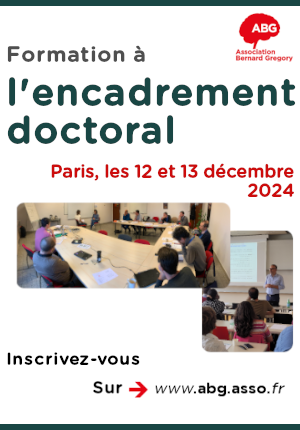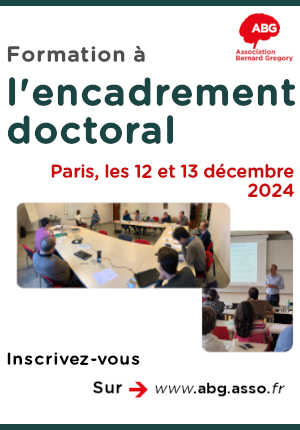PhD#5 at Mines Paris in Data Science & Energy: "Optimization of flexibility services under multiple local uncertainties in the context of smart grids"
| ABG-122044 | Sujet de Thèse | |
| 30/10/2024 | Autre financement public |

- Sciences de l’ingénieur
- Energie
- Mathématiques
Description du sujet
Title: "Optimization of flexibility services under multiple local uncertainties in the context of smart grids"
Context and challenges:
In the context of the energy transition, power grids integrate massive amounts of renewable generation (mostly wind and solar) whose volatility and uncertainty bring unprecedented challenges to the grid operation. Flexible generation and demand, as well as storage or storage-like resources, are key for the efficient and reliable management of future power systems. The quest for flexibility is paramount at different temporal but also spatial scales (at the transmission level, at the perimeter of an aggregator or, more locally, at distribution networks) and has expanded to multi-energy systems, e.g., the coupling between electrical and gas networks. Existing methodologies that propose flexibility indicators at a national level need to be revisited at the local level, by considering local characteristics and uncertainties in production and demand at a given territory (district, region), and accounting for events that deviate from normal operating conditions (e.g., peaks due to electric vehicle charging, low renewable availability during long periods, etc.). In a given territory, flexibility valorization raises a multitude of territory-specific questions, e.g.: Should a local flexibility market be deployed? What is the potential of local energy communities? How do local conditions affect territory-level decisions for the flexibility provision and use?
Main objective of the thesis:
The overarching objective of this research project is to develop an approach for the optimal provision and use of flexibility at the level of a territory, which accounts for the uncertainties associated with local renewable production and local energy consumption of the potential flexible consumers (residential, commercial, industrial).
Methodology and expected results:
The first step of this research project is to define flexibility provision indicators, based on production/consumption adequacy and contextual assessment at the level of a territory, relying on predictive methodologies to quantify the local flexibility potential. These indicators will be used as inputs to produce a risk-aware analytical decision-aid methodology of flexibility valorization in multi-energy systems (second step), employing forecasting models and optimization. The third step is to simplify the arguably complex modelling chain by integrating forecasting and optimization via end-to-end learning of flexibility decisions based on AI, thus predicting directly flexibility decisions that are optimal as a function of the predicted local weather conditions (e.g. uncertain mixed-cloudy day) and the local socio-economic context (e.g. high commercial activity expected due to fair/sales etc.).
Nature du financement
Précisions sur le financement
Présentation établissement et labo d'accueil
The PERSEE Center is on e of the 18 research centers of MINES Paris. Its field of expertise concerns New Energy Technologies and Renewable Energy Sources (RES). Its research strategy is based on a "micro/macro" approach ranging from (nano)materials to energy systems. It is built around three structuring themes: i) materials and components for energy, ii) sustainable energy conversion and storage processes and technologies, and iii) renewable energies and smart energy systems.
This late is developped by one of the three groups of the Center, ERSEI, which stands for “Renewable Energies and Smart Energy Systems”. The ERSEI group develops methods and tools allowing the optimal integration of decentralized sources, including RES, storage devices, electric vehicles, active demand and other technologies, in energy systems and electricity markets. The research activity of the group is divided into three main themes. The first is based on the development of advanced short-term forecasting methods for different applications in power systems (i.e. forecasting of RES production, demand, dynamic line rating, market quantities, etc.). The second concerns the control and predictive management of energy systems. The aim is to design innovative approaches to optimise the operation (from real-time to days ahead) of different types of systems (smart-homes, microgrids, virtual power plants, energy communities, hybrid RES/storage plants, distribution grids multi-energy systems a.o.) considering uncertainties. The third axis concern planning and prospective studies that aim to optimise the design of future energy systems, generate furture scenarios, optimise investements etc.
The PERSEE Center is located within the scientific parc of Sophia-Antipolis, near the cities of Nice, Cannes and Antibes in the south of France. Its workforce is around 55 people.
Site web :
Intitulé du doctorat
Pays d'obtention du doctorat
Etablissement délivrant le doctorat
Ecole doctorale
Profil du candidat
Profile: Engineer and / or Master of Science degree (candidates may apply prior to obtaining their master's degree. The PhD will start though after the degree is succesfully obtained).
Good level of general and scientific culture. Good analytical, synthesis, innovation and communication skills. Qualities of adaptability and creativity. Motivation for research activity. Coherent professional project. Skills in programming (eg R, Python, Julia,…). A succesful candidate will have a solid background in :
- optimisation
- electrical engineering
- applied mathematics, statistics and probabilities, data science
Expected level in french : Not required
Expected level in english : Proficiency
Vous avez déjà un compte ?
Nouvel utilisateur ?
Vous souhaitez recevoir nos infolettres ?
Découvrez nos adhérents
 Groupe AFNOR - Association française de normalisation
Groupe AFNOR - Association française de normalisation  Généthon
Généthon  CESI
CESI  TotalEnergies
TotalEnergies  Aérocentre, Pôle d'excellence régional
Aérocentre, Pôle d'excellence régional  Tecknowmetrix
Tecknowmetrix  MabDesign
MabDesign  MabDesign
MabDesign  PhDOOC
PhDOOC  Institut Sup'biotech de Paris
Institut Sup'biotech de Paris  SUEZ
SUEZ  ONERA - The French Aerospace Lab
ONERA - The French Aerospace Lab  Institut de Radioprotection et de Sureté Nucléaire - IRSN - Siège
Institut de Radioprotection et de Sureté Nucléaire - IRSN - Siège  ANRT
ANRT  Laboratoire National de Métrologie et d'Essais - LNE
Laboratoire National de Métrologie et d'Essais - LNE  Nokia Bell Labs France
Nokia Bell Labs France  Ifremer
Ifremer  ADEME
ADEME  CASDEN
CASDEN





